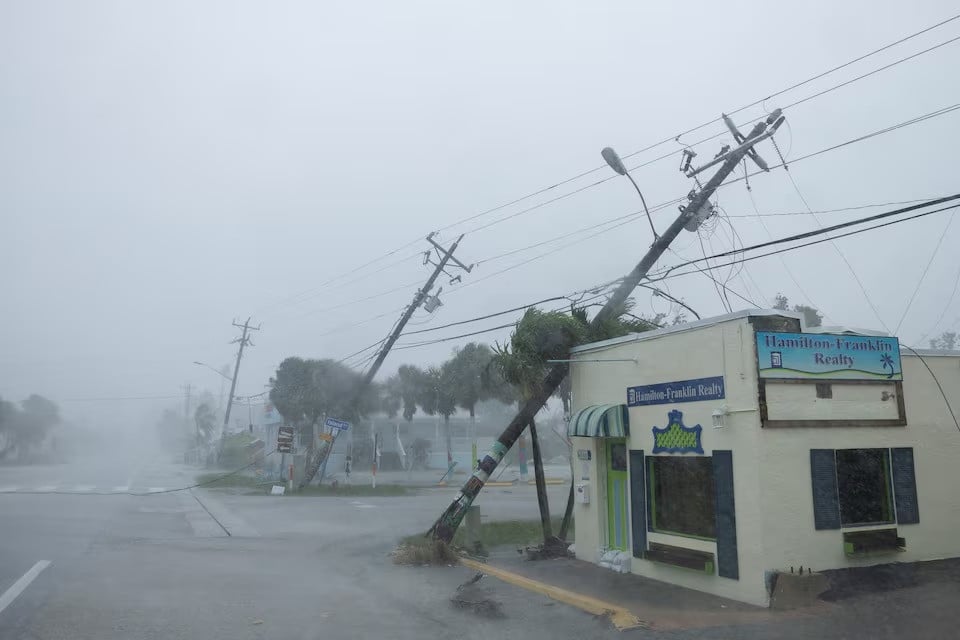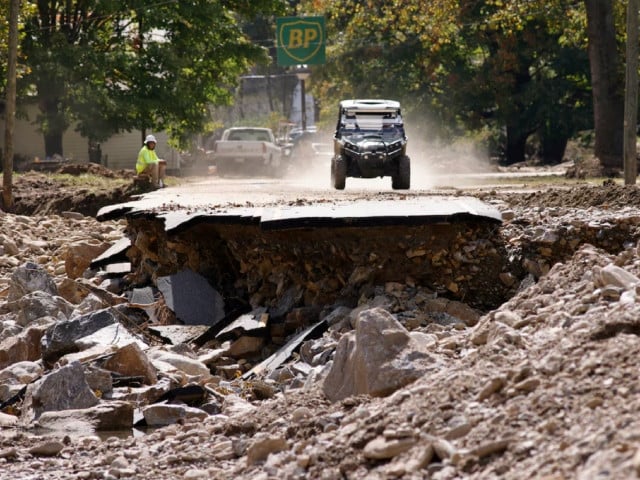
Hurricane Milton, a Category 3 storm, has caused widespread devastation across Florida, resulting in at least 14 deaths and leaving 3.4 million people without power. Making landfall on Wednesday night near Siesta Key, the hurricane brought sustained winds of 120 mph, torrential rain, and severe flooding to many areas, including Tampa and the Gulf Coast.
The storm, which weakened slightly from a Category 5 before hitting Florida, triggered dozens of tornadoes and 28-foot waves in the Gulf of Mexico. Tampa experienced historic rainfall, with streets littered with debris and fallen trees. The Tampa Bay Rays’ field in St. Petersburg also suffered significant damage.
Rescue operations began in earnest on Thursday as hundreds were saved from flooded homes and stranded vehicles. The death toll, currently standing at 14, is expected to rise as search and rescue teams continue their efforts. Florida Governor Ron DeSantis has issued warnings about potential further hurricane activity as the Atlantic hurricane season persists through November.
Hurricane Milton's destruction follows closely on the heels of Hurricane Helene, which hit just a few weeks earlier. With the damage from Milton still being assessed, it is unclear how it will compare to other deadly storms. However, early estimates suggest that Milton could cause tens of billions of dollars in losses, adding to the $570 billion caused by the most fatal hurricanes of the 21st century.
Milton caused the second-largest power outage in recent Florida history, affecting over 3.4 million residents, especially in Hillsborough and Pinellas Counties around Tampa. The impact on electricity infrastructure places Milton among the worst storms to disrupt power in the state, alongside Hurricane Irma in 2017.
As temperatures in the Gulf of Mexico continue to rise, driven by climate change, hurricanes like Milton are becoming more intense and destructive. Warmer ocean waters fuel rapid intensification, as seen with Milton, which rapidly strengthened over the Gulf before making landfall. Experts predict more frequent and powerful storms as climate conditions worsen, putting Florida and other Gulf states at greater risk.
Florida's vulnerability to hurricanes has raised concerns over the future of insurance coverage for homes and businesses, especially after back-to-back storms like Helene and Milton.
The long-term impact of Hurricane Milton will take time to assess, but it is clear that Florida is once again facing the devastating consequences of extreme weather.

1728634776-0/BeFunky-collage-(54)1728634776-0-165x106.webp)
1728633444-0/BeFunky-collage-(53)1728633444-0-165x106.webp)
1727242355-0/Diddy-(1)1727242355-0-165x106.webp)


1728634776-0/BeFunky-collage-(54)1728634776-0-270x192.webp)
1728633444-0/BeFunky-collage-(53)1728633444-0-270x192.webp)
1727242355-0/Diddy-(1)1727242355-0-270x192.webp)




1728543913-0/milton-(1)1728543913-0-270x192.webp)
1728540877-0/BeFunky-collage-(47)1728540877-0-270x192.webp)






COMMENTS
Comments are moderated and generally will be posted if they are on-topic and not abusive.
For more information, please see our Comments FAQ